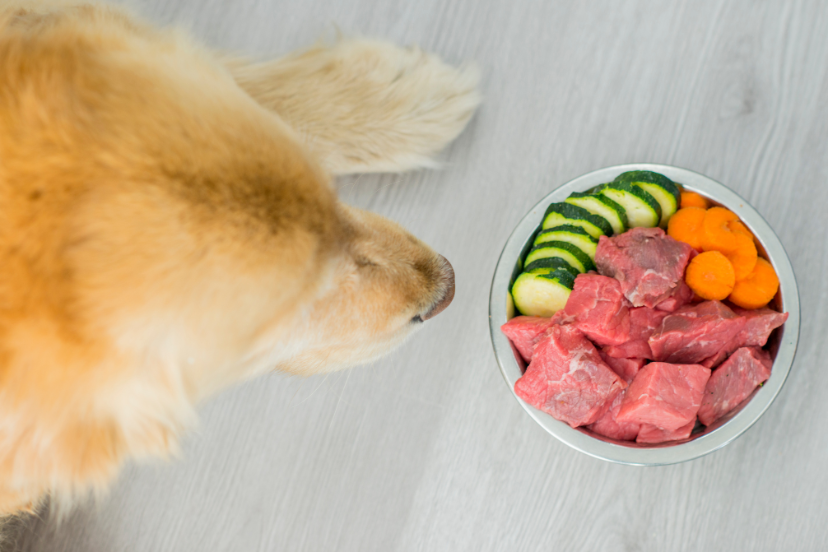Balanced Diet for Dogs: Paws-itively Perfect Nutrition
Introduction
Your canine companion’s health is a top priority, and providing a balanced diet for dogs is essential for their overall well-being. In this comprehensive guide, we’ll delve into the importance of nutrition for dogs, how to create a balanced diet, feeding schedules, and address common questions about canine nutrition.
Understanding the Importance of Nutrition for Dogs
A balanced diet is crucial for dogs to thrive both physically and mentally. Just like humans, dogs require a variety of nutrients to support their growth, energy levels, and immune function. Without proper nutrition, dogs can develop a range of health issues, including obesity, dental problems, and digestive disorders.
What Constitutes a Balanced Diet for Dogs?
Creating a balanced diet for your furry friend involves providing a combination of proteins, carbohydrates, fats, vitamins, and minerals. Here’s a breakdown of the essential components:
- Proteins: Serve as the building blocks for your dog’s muscles, organs, and immune system. Opt for high-quality sources such as lean meats, fish, eggs, and legumes.
- Carbohydrates: Provide energy for your dog’s daily activities. Incorporate healthy carbohydrates like whole grains, fruits, and vegetables into their diet.
- Fats: Essential for maintaining healthy skin and coat, as well as supporting brain function. Include sources of omega-3 and omega-6 fatty acids such as fish oil and flaxseed oil.
- Vitamins and Minerals: Play a vital role in various physiological processes. Ensure your dog receives adequate vitamins and minerals through a balanced diet or supplements if necessary.
Designing a Balanced Diet Plan for Your Dog
When planning your dog’s meals, consider their age, breed, size, activity level, and any specific dietary requirements or health conditions. Here’s a step-by-step guide to designing a balanced diet plan:
- Consult with Your Veterinarian: Seek guidance from your veterinarian to determine your dog’s nutritional needs and any dietary restrictions or allergies.
- Choose High-Quality Dog Food: Opt for commercial dog food that meets the Association of American Feed Control Officials (AAFCO) standards for complete and balanced nutrition.
- Incorporate Variety: Rotate between different protein sources, grains, fruits, and vegetables to ensure your dog receives a wide range of nutrients.
- Monitor Portion Sizes: Avoid overfeeding or underfeeding by following feeding guidelines provided by the dog food manufacturer and adjusting portions based on your dog’s weight and activity level.
- Provide Fresh Water: Ensure your dog has access to clean, fresh water at all times to stay hydrated and aid digestion.
Establishing a Feeding Schedule
Consistency is key when it comes to feeding your dog. Establishing a regular feeding schedule helps regulate their metabolism and prevents overeating. Here are some tips for creating a feeding schedule:
- Divide Meals into Portions: Split your dog’s daily food allowance into two or three smaller meals to prevent bloating and promote digestion.
- Set Meal Times: Choose specific times of day to feed your dog, such as morning and evening, and stick to the schedule to establish a routine.
- Monitor Eating Habits: Pay attention to your dog’s eating habits and adjust their feeding schedule if necessary, especially during growth stages or if they have special dietary needs.
Frequently Asked Questions (FAQs) About Balanced Diet for Dogs
- How much should I feed my dog?
- The amount of food depends on factors such as age, weight, activity level, and metabolic rate. Consult with your veterinarian for personalized recommendations.
- Can I feed my dog homemade food?
- While homemade diets can be nutritious, it’s essential to ensure they meet your dog’s nutritional needs. Consult with a veterinary nutritionist to formulate a balanced homemade diet plan.
- Are raw diets suitable for dogs?
- Raw diets can pose risks such as bacterial contamination and nutrient deficiencies. If considering a raw diet, consult with your veterinarian to weigh the pros and cons and ensure proper food safety measures are followed.
- Should I give my dog supplements?
- Supplements may be necessary if your dog has specific nutritional deficiencies or health conditions. Always consult with your veterinarian before adding supplements to your dog’s diet.
- How do I know if my dog is overweight?
- Monitor your dog’s body condition score and consult with your veterinarian for regular weight checks. Signs of overweight include a lack of waistline, difficulty feeling ribs, and lethargy.
- Can dogs be vegetarian or vegan?
- While dogs are omnivores and can technically survive on a plant-based diet, it’s challenging to ensure they receive all essential nutrients without animal-derived ingredients. Consult with a veterinarian before transitioning your dog to a vegetarian or vegan diet.
Conclusion
Providing a balanced diet for your dog is essential for their overall health and well-being. By understanding their nutritional needs, designing a balanced diet plan, and establishing a feeding schedule, you can ensure your canine companion receives the nutrients they need to thrive. Remember to consult with your veterinarian for personalized recommendations and address any questions or concerns about your dog’s diet. With proper nutrition, you can help your furry friend live a long, healthy, and happy life.




